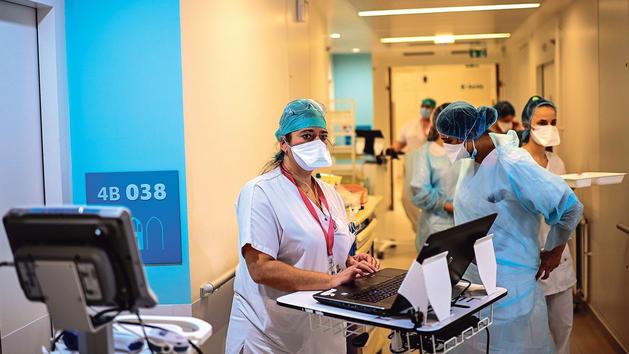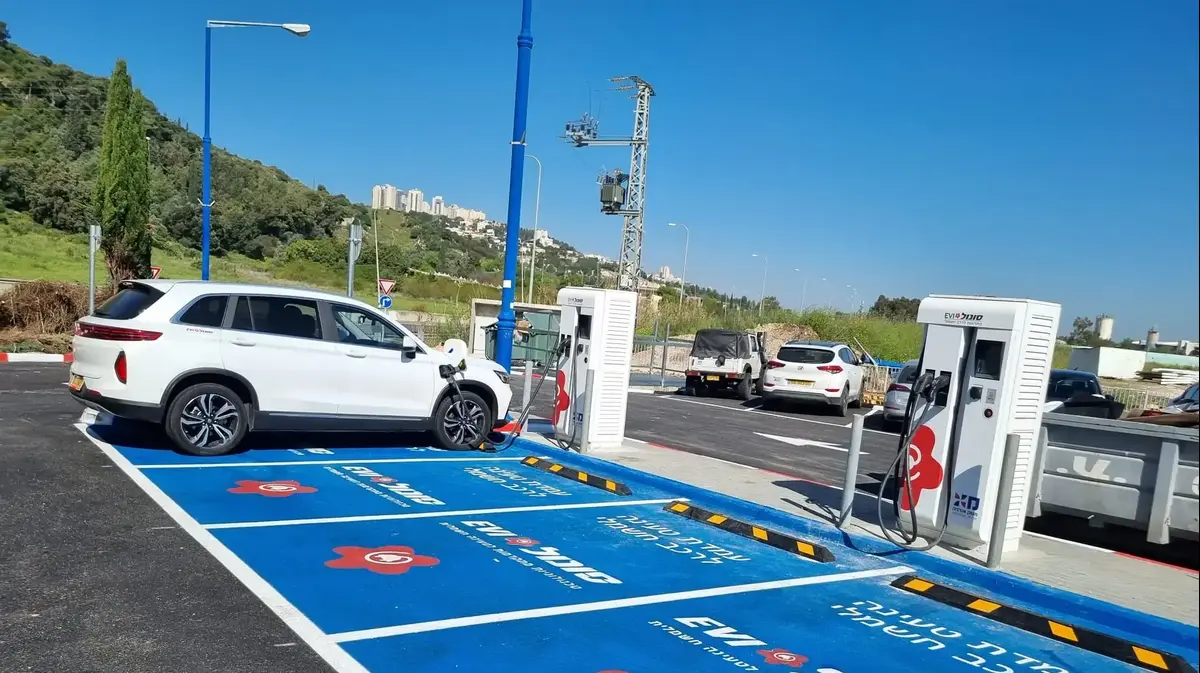The Covid-19 epidemic is recording such an acceleration in France that it no longer seems possible to wait to know the impact of the curfew imposed on 54 departments to think about a new arsenal of measures.
"We ourselves are surprised by the brutality of what has been happening for ten days"
, admitted Monday the president of the scientific council, Jean-François Delfraissy.
But if the word "reconfinement" is no longer taboo in the mouth of Emmanuel Macron, the hope is still to avoid that it is as broad and penalizing as last spring.
For this, various levers for reducing social life exist, which are nothing other than components of the confinement that we have known, and on the effectiveness of which knowledge has progressed thanks to scientific research and feedback. of experience.
● Close schools and universities
This is one of the most sensitive points of debate.
Should schools be closed, and if so, at what level?
"The closure of high schools and universities can be an important lever of action against the epidemic",
estimates Mircea Sofonea, epidemiologist at the University of Montpellier, who recalls that
"a high school student has the same epidemiological impact as an adult"
.
Already, since October 6, French universities can no longer exceed 50% of the capacity of their premises.
Antoine Flahault, director of the Institute of Global Health at the University of Geneva, pleads for the total physical closure of higher and secondary education establishments, for
"about two weeks, in order to break the curve of progression of the virus without causing of irreparable dropouts ”
.
Read also:
Does a school have the right to refuse a student who shows symptoms of Covid-19?
The issue of young children is more debated.
"We do not know their role in the chain of transmission of the virus"
, recalls the epidemiologist.
On the other hand, we know that they show few symptoms when they are contaminated.
Associated with the handicap that their care represents for working parents, this last argument has so far pleaded in favor of opening primary schools.
Antoine Flahault nevertheless considers it desirable that pupils wear masks from the age of 6, and that ventilation in schools and nurseries be improved.
Working remotely is a great way to reduce the number of contacts in the company but also in public transport
Antoine Flahault, Chairman of the Scientific Council
● Reinforce teleworking
Since October 14, the practice has been strongly encouraged, at the rate of 2 or 3 days a week, in the territories in a state of health emergency with curfew.
The President of the Republic then recognized that teleworking is not always easy depending on the family context, and that one can feel the
“need to exchange with (
his)
colleagues”
.
Tuesday, however, the Minister of Labor, Élisabeth Borne, estimated on Franceinfo that the current health situation requires to go
"fully"
on telework when the position held allows it.
“Working remotely is a very good way to reduce the number of contacts in the company but also in public transport,”
recalls Antoine Flahault.
Professor Delfraissy also called for the greatest caution in company restaurants.
The clusters identified in the professional environment, private as well as public, amounted to 916 out of 4,365 on October 15, more than in schools, according to Public Health France.
Read also:
Five misconceptions about teleworking
● Ban large gatherings
In the 54 departments placed under curfew, establishments open to the public in the open air such as stadiums can still accommodate up to 1,000 people.
However, it is no longer possible to use reception rooms to organize a party, and meetings of more than 6 people in public spaces are prohibited throughout the territory.
A recent study published in the
Lancet Infectious Diseases
by researchers at the University of Edinburgh found that banning public events was the most effective measure, ahead of school closures, telecommuting, and restrictions on travel within the city. country, to lower the R indicator, which reflects the speed of the epidemic's spread.
According to their calculations based on 131 countries, in one month the ban on public events had lowered the value of R by 34%.
The authors of the study specify, however, that the effectiveness of the measure could be due to the fact that it was often the first implementation.
"All the others are then added up, sometimes several at a time, which makes the analysis of their respective impact more complex",
explains
Professor Harish Nair
to
Le Figaro
.
A curfew is nothing more than night confinement.
The more you lengthen it, the more effective it is by reducing social contact
Antoine Flahault, Director of the Institute for Global Health at the University of Geneva
● Bring forward the curfew time or confine the weekend
Imposed in Île-de-France and 8 metropolitan areas on October 16, then extended to 54 departments since last Saturday, the curfew is a little too recent for its effects on the epidemic curve to be measurable.
Nevertheless, the Guyanese experience of last summer would have, it seems, convinced the Head of State of its usefulness.
In the overseas department, in two months (June-July), the R had fallen from 1.7 to 1.1 (-36%), which had made it possible to release the pressure on the intensive care units.
However, some have noticed that it is also difficult to distinguish the effectiveness of the Guyanese curfew from the other measures that have accompanied it (localized confinements, closure of the border with Brazil, etc.).
In Guyana, the curfew was first implemented from 9 p.m. to 6 a.m., then from 5 p.m. to 5 a.m.
On weekends it started at 1 p.m. on Friday and ended at 5 a.m. on Monday.
“A curfew is nothing other than night confinement,
analyzes Antoine Flahault.
The more you lengthen it, the more effective it is in reducing social contact.
Extending it to the weekend will only strengthen it. "
Experts hammer it in for all the measures: they only aim for one thing, to reduce our contact with contaminants.
It is possible to achieve this in two ways: by making our interactions less risky thanks to barrier gestures, already widely adopted, or by shrinking our "social bubble", which is what all containment measures are aimed at.
"With an R at 1.37 and not at 3 as in March, we are not so far from being able to control the epidemic,"
said Mircea Sofonea.
Many reflexes have already been adopted, but the message should be modulated according to age, because the expected efforts are not the same for young people or for those over 65.
Finally, we have to make an effort in the private sphere, until the good weather returns. ”












